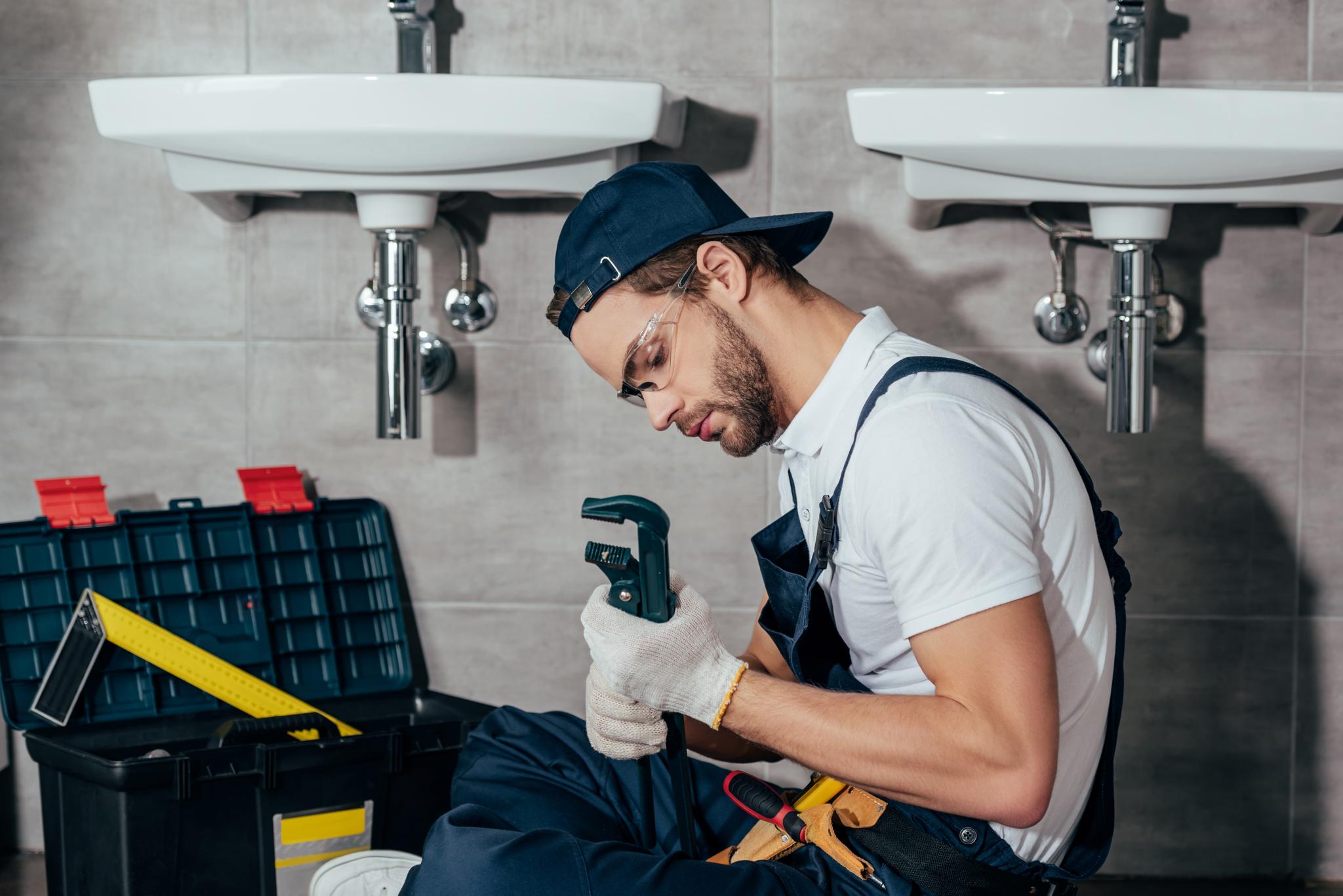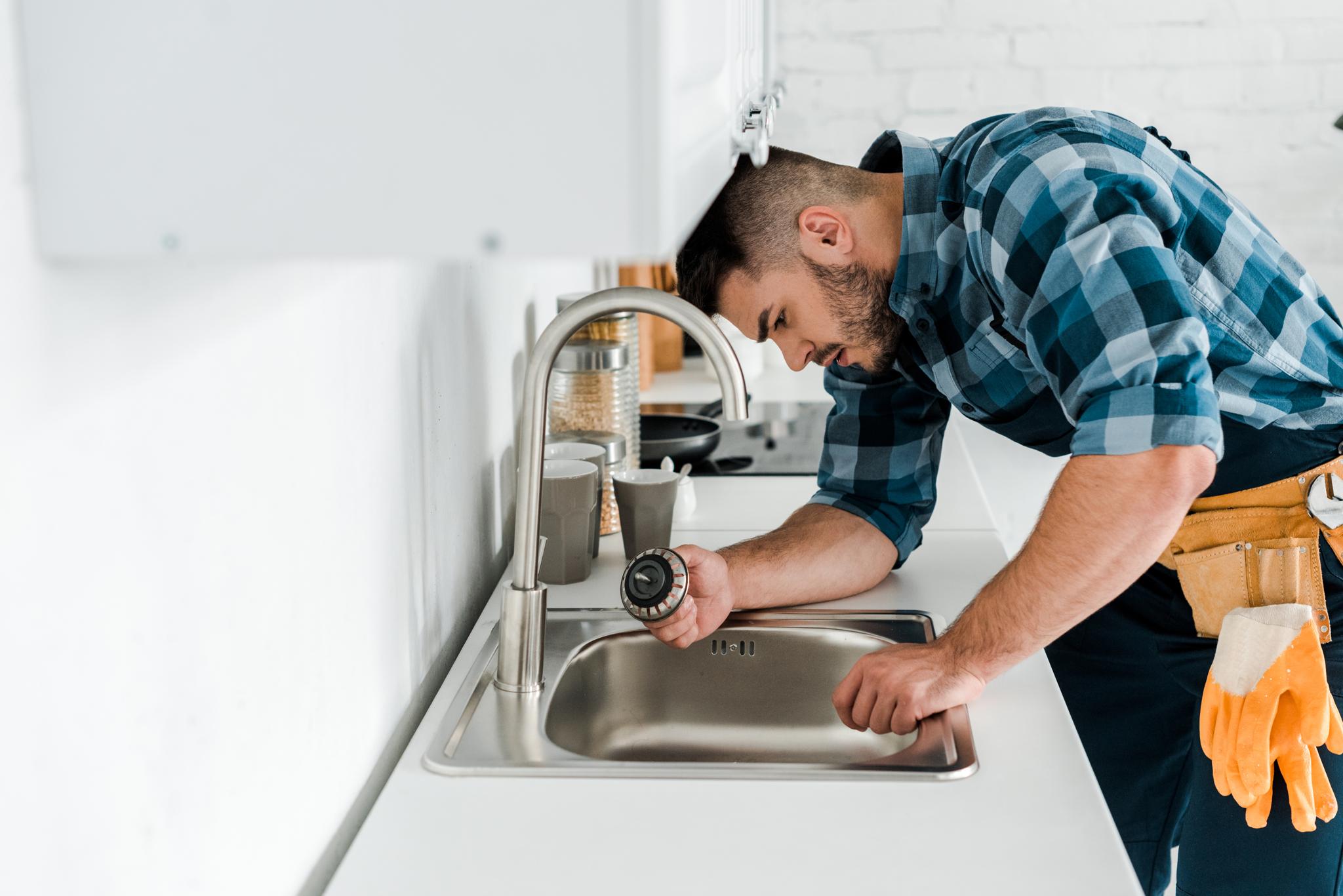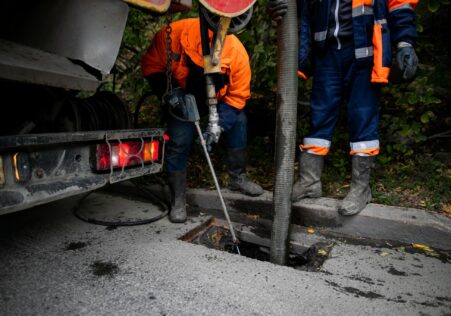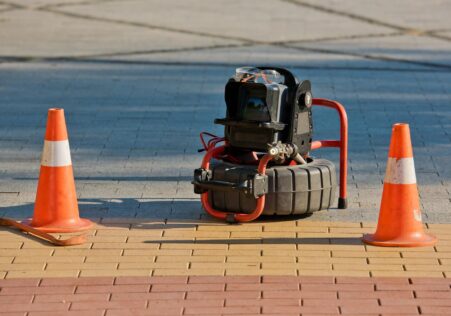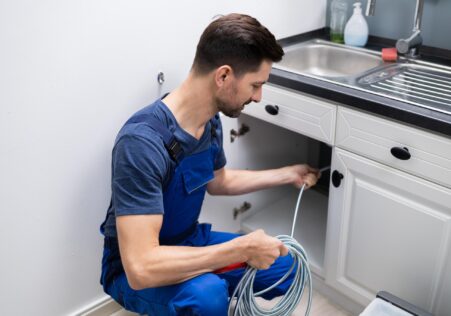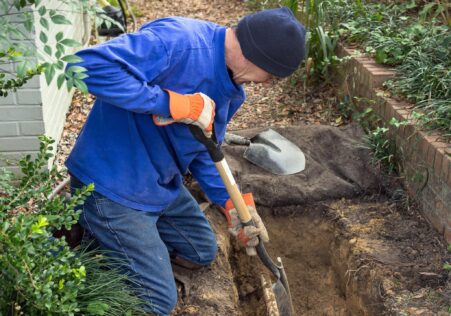What to Do When Your Toilet is Blocked: A Step-by-Step Guide

Toilet blockages can occur at any time and can be a frequent household problem. They can be uncomfortable messy and uninspiring and require immediate attention. But, you don’t necessarily have to contact the plumber immediately. In this blog we’ll take you through a few easy steps to get your toilet unclogged in no time.
Key Takeaways
- Toilet blockages can be cured with simple tools and methods such as plungers, baking soda
The Tools You’ll Need
Before we get started we must be prepared with these tools:
- Rubber Gloves
- Plunger
- Baking Soda and Vinegar (Optional)
- A Wire Coat hanger, or a Pipe Snake (Optional)
Step 1: Turn off the supply of water valve.
The first thing you should do when faced with a blocked toilet is to shut off the water supply valve that is behind the toilet. This step ensures that no water can enter the tank during your try to get it unclogged. The valve is normally found near in the middle of the tank on one side.
Step 2: Be sure to protect yourself with rubber gloves.
Your hands must be protected from potential bacteria or germs present in your toilet with rubber gloves before making use of any tools to unblock the drain.
Step 3: Use a plunger.
The plunger is by far the most effective tool for cleaning toilets that are blocked. Start by pushing down onto the plunger till all air is released, then place it in the hole in your toilet bowl. Then, start to plunge quickly up and down for about 20 minutes. The suction caused by the movement of the plunger can help clear any obstructions.
Tips:
- Be sure to use a powerful but controlled motion.
- Cover holes around sinks or shower drains if close enough to prevent the release of pressure as you plunge.
Step 4: Try baking soda and vinegar in a mixture.
If plunging doesn’t work Try this method Pour half a cup of baking soda and 1 cup of vinegar into the toilet bowl. Allow the mixture to settle for 15 to 20 minutes. The mixture will start to fizz, and when it stops you can pour hot water down (not boiling) to remove the obstruction.
Step 5 5. Use a coat hanger that is wire or a plumbing snake.
If both plunging and baking soda/vinegar methods have failed to clear the clog, then it’s time to use a wire coat hanger, or plumbing snake. Straighten the coat hanger’s wire until you have a thick, thin wire with a hook that is bent at one end. You can also use your plumbing snake that is made specifically to clear drain clogs. Install the snake in the drain hole in your toilet and then twist to turn, push, at the same time until you sense a resistance. it’s the place where the blockage occurs. Be gentle and try to break any blockages with a back-andforth motion without causing damages in your drainpipe.
Note:
- Be careful not to push or pull actions as they could create more problems.
Step 6: Turn on the water supply, and then check the result.
Once you’ve cleared up any obstructions, it’s crucial to turn off the water supply valve that is behind your toilet bowl once more. Then flush it several times to make sure the water is flowing freely!
| Tools | Description |
|---|---|
| Rubber Gloves | Hand protection from potential bacteria or germs present in the toilet bowl. |
| Plunger | Most effective tool for clearing up blocked toilets. Press firmly over the hole in your toilet bowl and plunge vigorously up and down for about 20 seconds. |
| Baking Soda and Vinegar | Mixture to use if plunging doesn’t work. Pour half a cup of baking soda and one cup of vinegar into the toilet bowl. Let this mixture settle for about 15 minutes, then pour hot water down (not boiling) to flush out the blockage. |
| Wire Coat Hanger or Plumbing Snake | Tools to use if both plunging and baking soda/vinegar methods have failed. Straighten the wire coat hanger until you have a long thin wire with a hook bent at one end or use the plumbing snake, which is designed specifically for clearing drain clogs. |
FAQs
How do I know when my toilet has become blocked?
One of the most typical indications of a toilet that is blocked is when water rises to the top of the toilet after flushing. You may also notice that the water drains slowly, or you may hear the sound of gurgling out of the bathroom.
What can I do if my toilet is blocked?
If you believe your toilet has been blocked and you are unable to flush it, do not attempt to flush it in the future as this could cause flooding. Instead, shut off the supply of water at the valve behind the toilet and use a plunger to try and remove any blockages. If this fails contact Perth Blocked Drains Plumbers for professional help.
How can I stop my toilet from getting blocked?
Yes! There are a variety of ways to keep your toilet from becoming blocked. One of them is to avoid flushing items that are not biodegradable, such as sanitary products, wet wipes or cotton wool in the toilet. Also, avoid spilling oil or grease down the sink, as it can cause solidification and block pipes.
When should I contact an experienced plumber to fix a blocked toilet?
If you’ve tried plunging the toilet, but it won’t unblock or you suspect that there’s a problem with your plumbing system causing frequent blockages, it’s the right time to seek out an experienced plumber such as Perth Blocked Drains Plumbers . We have many years of experience in dealing with all kinds of plumbing problems and are able to quickly identify and address any issues with minimal disruption to your home.
When should I schedule my drains cleared?
It’s recommended that you have cleaning your drainage system by experts like Perth Blocked Drains Plumbers every 1-2 years. This will help prevent blockages and keep your plumbing system functioning smoothly. However, if you frequently experience drain blockages or slow draining water, despite taking precautions not to clog them, then cleaning your drains every year could be beneficial.
These strategies are simple to implement, and most of these items are readily available in homes. If you’re facing a blocked toilet, prior to being anxious after attempting the techniques, call Perth Blocked Drains Plumbers ‘s expert plumbers located in Perth , if you’re searching for professional assistance for those blocked toilets.
Additional Information
- CCTV Drain Inspection: A Detailed Guide on What It Is and How It Works
- The Ultimate Checklist for a Smooth-flowing CCTV Drain Inspection Experience
- CCTV Drain Inspection: An Effective Way to Prevent Future Plumbing Issues
- Inspecting Drains Using CCTV to Detect Root Infiltration: Benefits for Property Owners
- The Importance of Professional Drain Cleaning for Your Family's Health and Safety
- A Comprehensive Overview of CCTV Drain Inspection for Your Home
- The Do's and Don'ts of Keeping Your Drains Free from Blockages
- CCTV Drain Inspections: The Key to Preventing Clogs and Other Plumbing Issues
- The Benefits of CCTV Drain Inspection: Beyond Unclogging Pipes
- DIY Drain Cleaning: How to Safely Tackle Clogged Drains


